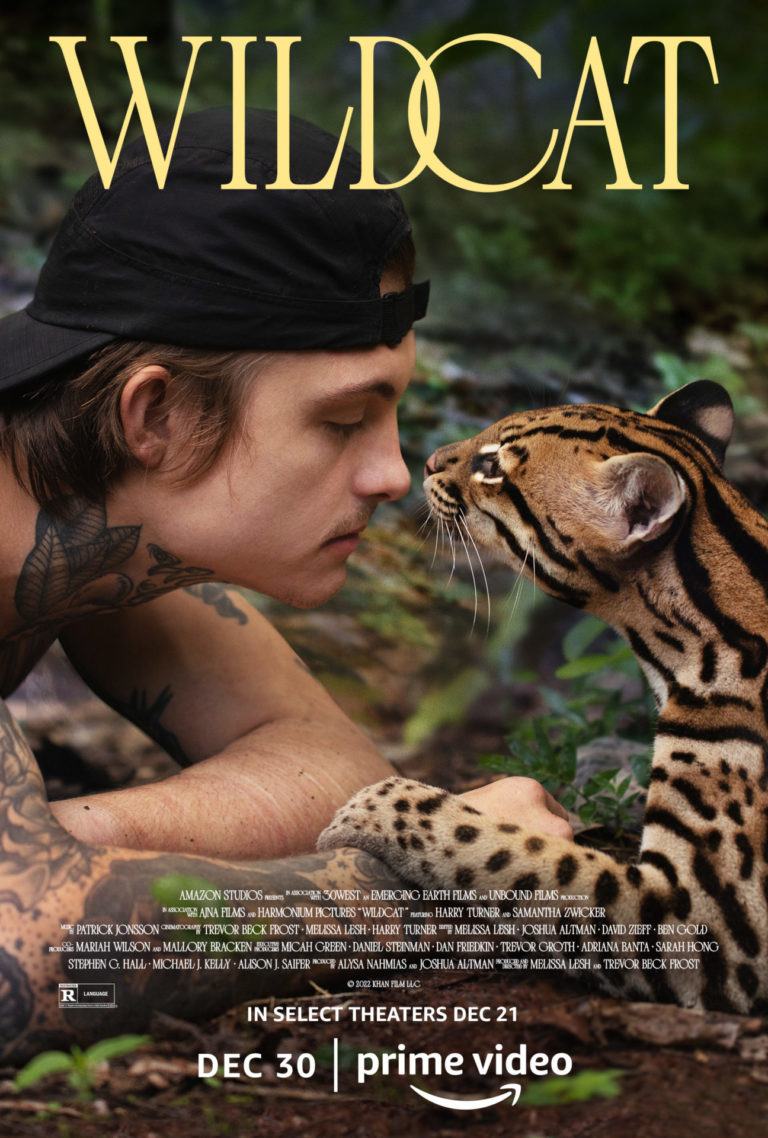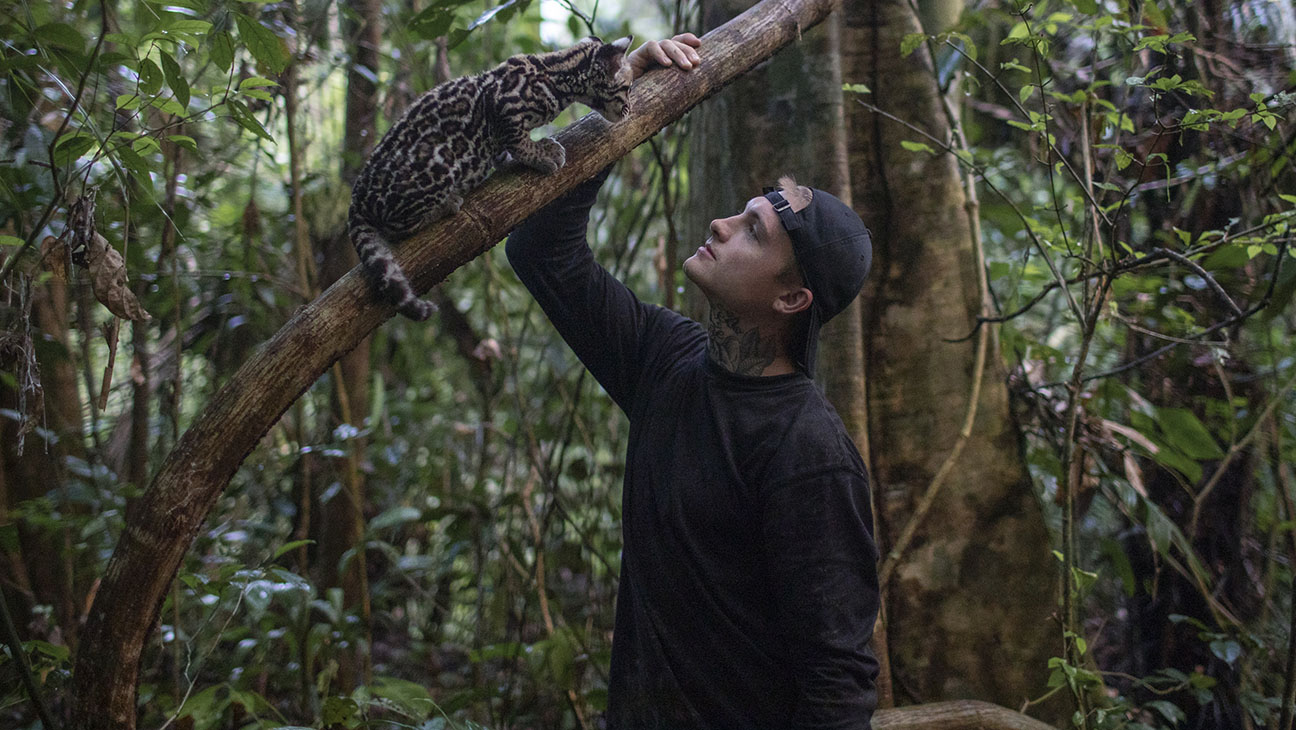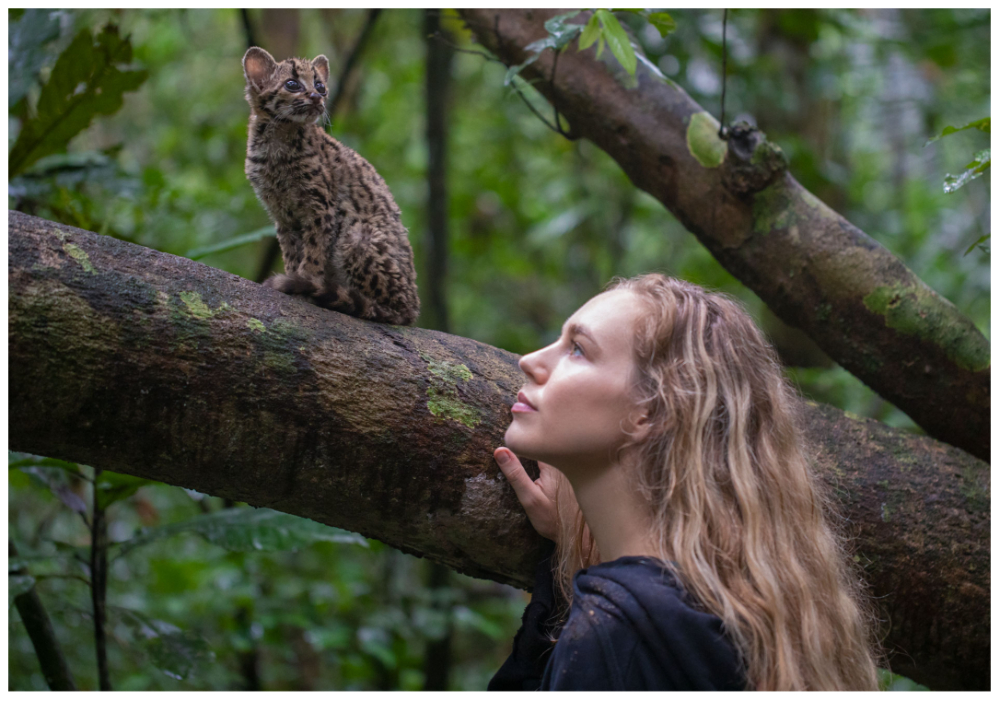
The directors-producers of Wildcat, Melissa Lesh and Trevor Beck Frost, lead audiences on an incredible journey of healing through nature. In this story, that takes place in Peru, multiple coming-of-age stories intertwine. Harry learns to cope with post-traumatic stress disorder, Sam acknowledges that she needs to overcome her Wendy Syndrome, Khan succumbs to the perils of the wilderness, whilst Keanu succeeds in surviving against them.
Wildcat follows the emotional and inspiring story of a British soldier (Harry Turner), who after he is back from war in Afghanistan embarks upon a volunteer programme in the Amazon. This is where he meets a young American scientist (Samantha Zwicker), running the Hoja Nueva Headquarters, a wildlife rescue and research centre specialised in carnivores. Suddenly Harry’s life finds new meaning as he is entrusted with the life of an orphaned baby ocelot. “We are wild animals, me and you”, Harry tells Khan. The veteran finds a kindred spirit in that savage creature. Harry’s rebirth thus begins, as he plays house with Sam and Khan, until the sudden death of the feline baby disrupts his equilibrium and plunges him in the depths of crepuscular thoughts. The fact Khan doesn’t survive the hazards of the jungle marks a devastating loss for Harry, it kills all of his newly acquired happiness, until another wildcat enters his life: Keanu. Taking care of this animal marks a redemption for Harry, albeit trauma keeps knocking at his door.

Tending these baby ocelots truly allows Harry’s journey of healing and self-discovery. He went to Afghanistan when he was only eighteen years old and amongst the horrors he witnessed there was the slaughtering of a young girl. The entire experience left him with PTSD and recurring depression that would often stem out into self-harming moments cutting himself and suicidal thoughts. Sam’s presence as a conservation mentor and sentimental partner is important for his process of recovery. Equally crucial is the support the British veteran gets from his family. When Harry’s little brother David and his parents visit him from the U.K. everyone is nothing but smiles and optimism. They all experience what seems like a family trip in the wilderness, with the two siblings exchanging generational perspectives.
However Harry’s mental health rehabilitation traverses a bumpy road. His mood swings affect Sam’s well-being, who is sucked in a spiral of abuse she already experienced with her alcoholic father. A recurring comment she makes for both men is how they are “two different people” a caring playful dad, that when drunk became psychologically and physically violent, and a partner who would lovingly write poems and letters each day, but would then enter a dark place when overwhelmed by sadness. She finally breaks free from this pattern of saving the men around her, and dedicates herself entirely to her conservation project, encouraging Harry to find his stability back home in England, before embarking on the next volunteer program in Ecuador.

This incredible cinematic piece shows with extreme efficacy the struggle of being alive. From the basic survival aspect — through the ocelots’ perspective — to the more complex hurdles that traverse the mind — through the traumas of two human beings who love each other and need to go their separate ways to overcome their respective pain. Audiences have the chance to observe the work of a team focusing on the reintroduction plan of a species, and how this can be a mirror to what is occurring in the lives of those who are saving a wild animal.
The rapport between outdoor felines, behaving like domesticated pets and cherishing their foster human families is one that is always inspiring and moving. A famous predecessor to Harry’s story is the one of Christian the Lion, raised by John Rendall and Anthony “Ace” Bourke in London, back in 1969. The king of the jungle was eventually reintroduced to the African wild and when his former owners visited him a year later he recognised and greeted them with immense affection. In Wildcat we witness how Keanu takes this kind of love story a step further by involuntarily acting as therapy pet, showing how potent ecological connectivity can be.
Final Grade: B+

